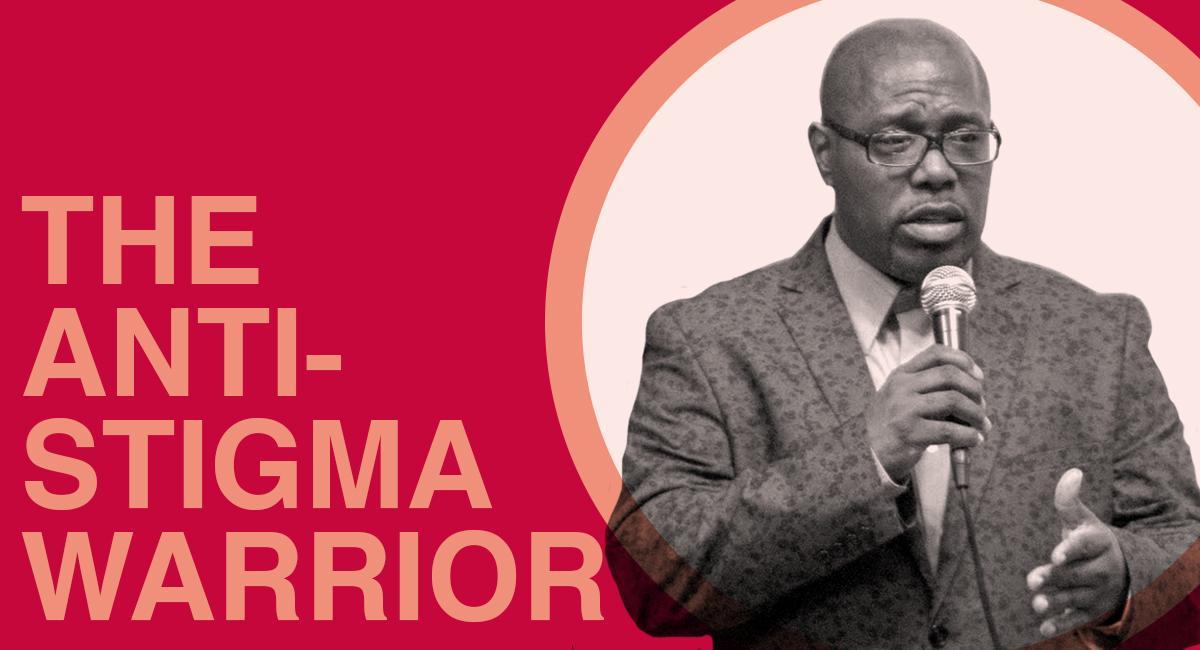I Get Hope from Knowing That I Have Purpose: Bishop Hartsel Clifton Shirley on HIV
"...and I will be able to exuberantly live out that purpose.”

Hartsel Shirley is a Bishop based in Atlanta, Georgia, who has been involved with HIV advocacy since 2002. He has participated in numerous conferences, panels, and workshops to educate others about aging with HIV and combat the stigma faced by people living with HIV, particularly in the Black community. “Hartsel” has 3 meanings – full of grace, a bright flame, a living marvel.
When did you find out you were HIV positive?
I found out in 1988, by way of a letter from the Armed Forces – I was just 19 years old and trying to escape a partner who was emotionally and physically abusive.
How has your HIV status impacted your life?
At first, it thrust me deeper into a shell. Very slowly, over time, I came to see it as a gift, a learning tree, and a means to know and love myself better than I had before.
Where have you gotten support to manage your HIV treatment?
Most of my support has come from intimate settings, such as friendships, small support groups, and HIV leadership boards I’m a part of.
How long have you been involved in HIV advocacy?
I have been involved in advocacy since 2003. It was actually 2002. I was in school at the time and got an instant message that asked me if I was really in Iowa. Being used to this, I responded that I was. The person informed me that they were in Detroit and they were looking for an alternate person to be a delegate from Iowa for an organization called AAMUAA (African American Men United Against AIDS). The instant message led to a lengthy phone call. I was thrilled at the chance to do so. This led to me quickly becoming the delegate from Iowa. That phone call was the initiation of my hands-on involvement.
Do you think there is an added stigma being a person from a racially marginalized community living with HIV, and if so, how do you handle it?
The stigma within the African American community at large is undeniably present. Over the years, people have stopped caring about HIV and view it as simply taking a pill. Before advanced medications, however, the deaths and the very visual decline in health was so dramatic and publicized that those images remain in the general public’s mind. I initially handled it by not telling anyone I was positive and internalized the negative messages in media and from my community, reinforcing my shell.
These days, I am much more apt to correct someone on misinformation around HIV. I have also volunteered at numerous conferences, facilitated workshops, worked at the former AIDS Survival Project as a test administrator and counselor, spoken on AIDS Atlanta’s Speaker’s Bureau, and even approached the Greater Than AIDS Campaign personnel for an international photo shoot and video. Through public service and open conversations, we can work to end this stigma.
Do you feel that you face additional challenges in care as a member of a racially marginalized community living with HIV?
The additional challenges I have faced are two-sided. There seems to be an unspoken expectation that, as a 50-year-old man, my financial state would be better, and my insurance would be better. I sense the disdain I get from the reality of my life. Also, being a Black gay male, there has been an air of resistance to really knowing and treating me holistically from my primary care doctor.
How would you support someone who recently received a positive HIV diagnosis?
My immediate response would be to give them a big, genuine hug. I easily recall not wanting or even imagining that anyone would want to touch me, kiss me, or even love me – my “scarlet letter” was a barrier to all of that. I would definitely extend my friendship to them and be available to them to help prevent them from feeling the same.
If you could give your younger self one piece of advice, what would it be? I would tell myself to be much gentler with myself than I was. I was incredibly hard on myself because, as a gay man, I believed my height and build made me inferior.
What gives you hope?
I get hope from knowing that I have purpose, and with the advances in medication I will be able to exuberantly live out that purpose.

